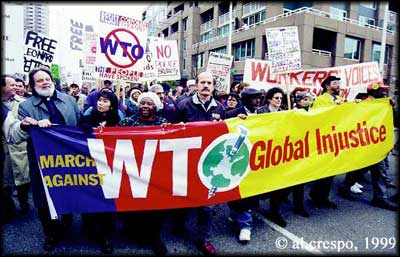Blog #20 – Would you be willing to go to jail?
“I became convinced that noncooperation with evil is as much a moral obligation as is cooperation with good. No other person has been more eloquent and passionate in getting this idea across than Henry David Thoreau. As a result of his writings and personal witness, we are the heirs of a legacy of creative protest.” – Martin Luther King, Jr, Autobiography
* emphasis is mine. 
Initially going back to the 5th Century, St. Augustine stated that “an unjust law is no law at all” giving some theological weight / heft to earthly laws. Henry David Thoreau suggested that we obey our conscience when we decide to obey or disobey a law. He went to jail during the Mexican War and wrote his famous essay on civil disobedience. Gandhi used Thoreau as inspiration, and King used Gandhi as an inspiration. Gandhi and King used religion to inspire and their followers. Here’s a quote from Dr. King from a sermon in the early days of the Montgomery Bus Boycott:
… I want it to be known that we’re going to work with grim and bold determination to gain justice on the buses in this city. And we are not wrong; we are not wrong in what we are doing.
If we are wrong, the Supreme Court of this nation is wrong.
If we are wrong, the Constitution of the United States is wrong.
If we are wrong, God Almighty is wrong.
If we are wrong, Jesus of Nazareth was merely a utopian dreamer that never came down to Earth.
If we are wrong, justice is a lie, love has no meaning.
My friends, we are determined … to work and fight until justice runs down like water, and righteousness like a mighty stream.
But we can’t necessarily have people going around disobeying laws that they don’t like. There has to be some standards. Right? According to Dr. King, he stated that the difference is:
“A just law is a man made code that squares with the moral law or the law of God. An unjust law is a code that is out of harmony with the moral law.“
He further elaborates on this and states that: “Any law that uplifts human personality is just. Any law that degrades human personality is unjust.”

Assumption: Since we cannot argue and fight with every law that we think goes against “the harmony of moral law” or disobey laws at whim (for instance, I might think that one day, the speed limit downgrades my personality, therefore I am going to take a principled stand against it by not obeying it), we have to assume that most laws need to be obeyed.
But what are unjust laws today??
1. Abortion? Or restrictions on abortion?
2. Wars or other military actions?
3. Immigration laws like the one in Arizona?
4. Gay rights? Or restrictions on gay rights?
5. Economic stuff like taxes? Or lack thereof on companies, individuals, etc.?
6. Military draft (don’t worry, we don’t have one)?
7. Environmental damage? Or lack of environmental laws?
8. Jobs or a lack of jobs?
9. Software and music / movie downloading -piracy?
10. Behavior / actions of an American company (sweatshops, illegally drilling, dumping, etc.)?
11. ????

Questions to answer:
a. Would you be willing to go to jail to protest unjust laws like the Civil Rights workers had done many times during the 1950s and 60s? (Consider the ramifications of a felony or misdemeanor on your record, and its impact on your possible future career).
b. After consulting the list above, which laws would you be willing to fight against? Why? (feel free to add to the list if you see any missing).
c. Do you agree with Dr. King’s reasoning w/ what makes a law just or unjust? Why or why not?
Due Wednesday, June 1 by class. 300 words total.

Letter from a Birmingham City Jail by Dr. King.
Link to Henry David Thoreau’s “Civil Disobedience.”
A history of mass civil disobedience by ACT UP.
